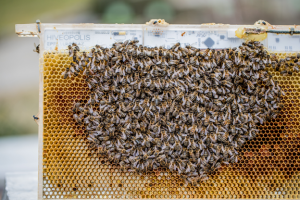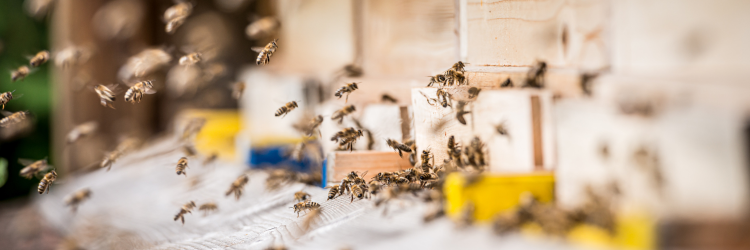Bees are fascinating. EPFL researchers just developed a temperature-modulating robotic system for seamless integration into honeybee hives for a never-before-seen view of honeybee behavior and a way to influence it.
It’s challenging to study bees. Instruments, conditions, and unfamiliar smells can disrupt their behavior. A joint research team from the Mobile Robotic Systems Group in EPFL’s School of Engineering and School of Computer and Communication Sciences and the Hiveopolis project at Austria’s University of Graz developed a robotic system that can be built into the frame of a standard honeybee hive. The system uses thermal sensors and actuators to measure and modulate honeybee behavior through temperature variations.

Bee colonies are challenging to study in winter since they are sensitive to cold, and opening hives is risky. The robotic system studied three experimental hives at the Artificial Life Lab at the University of Graz during winter. A central processor coordinated the sensors, sent commands to the actuators, and transmitted data to the scientists.
The scientists were able to prolong a colony’s survival following its queen’s death by distributing heat energy via the actuators. The system’s ability to mitigate colony collapse could affect bee survivability, a significant concern as the pollinators’ global populations decline.

